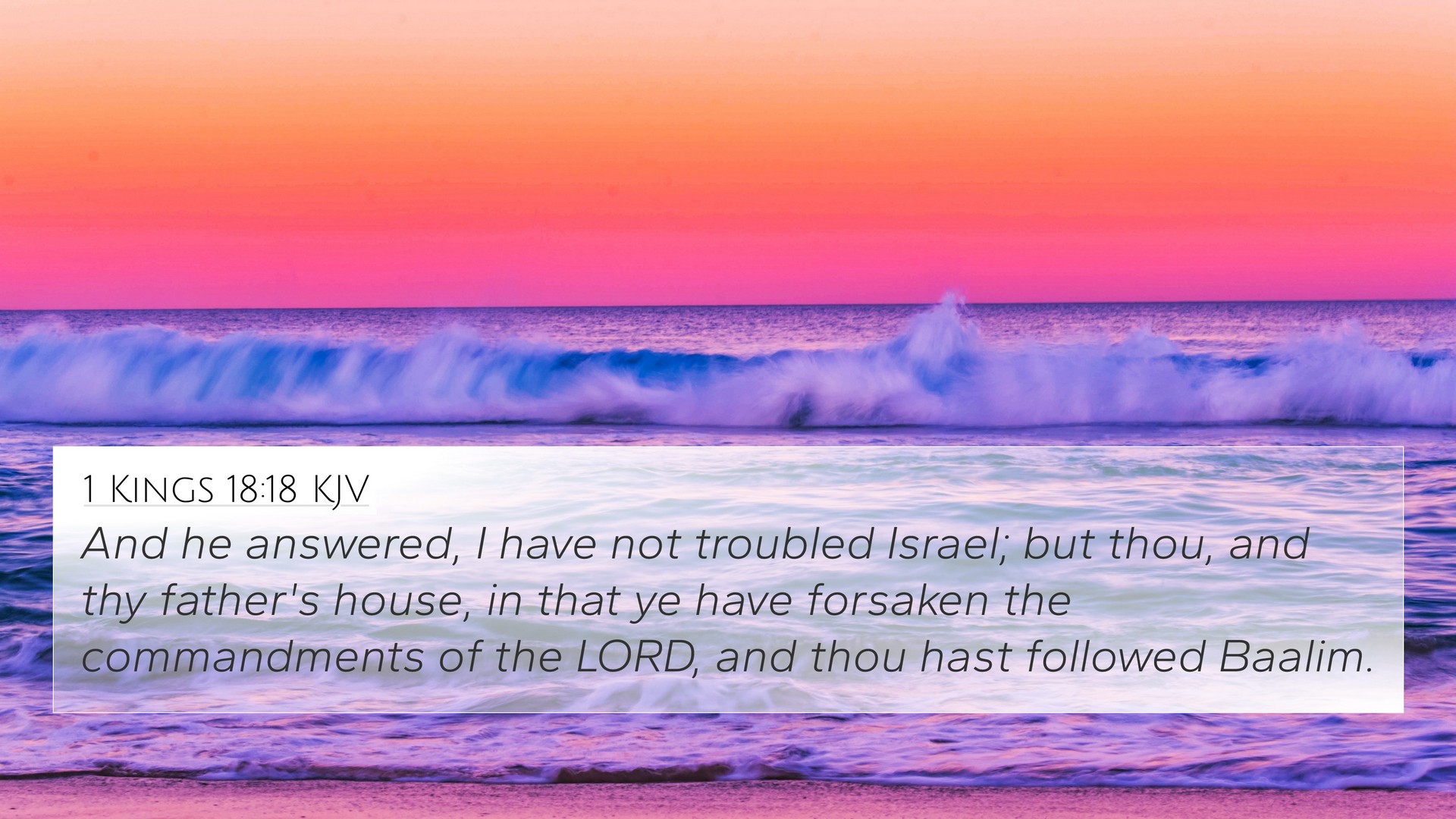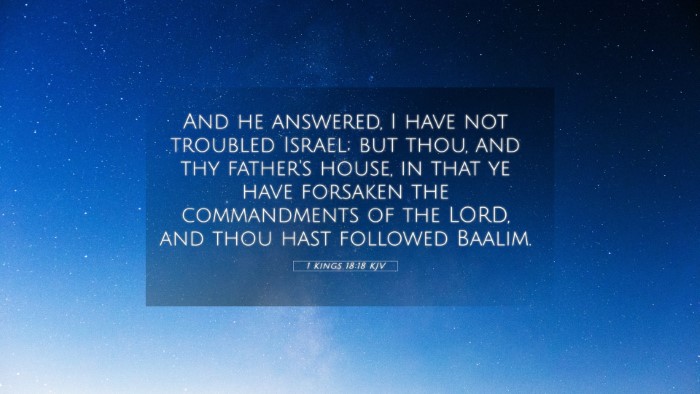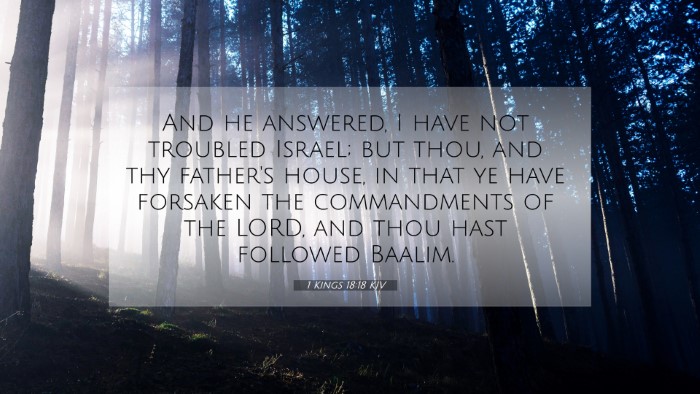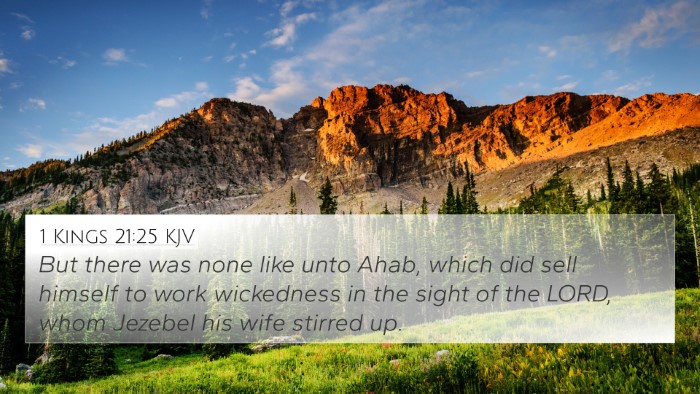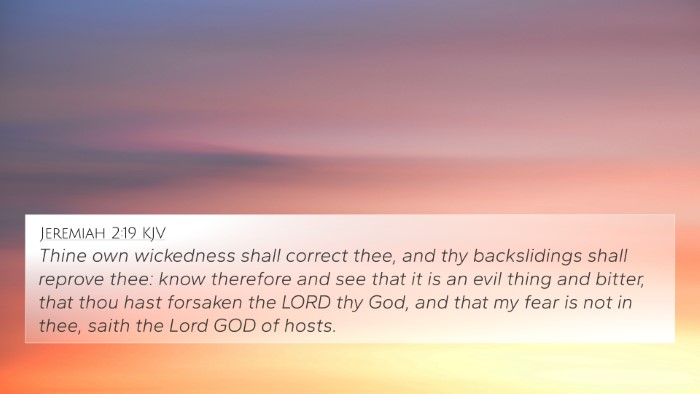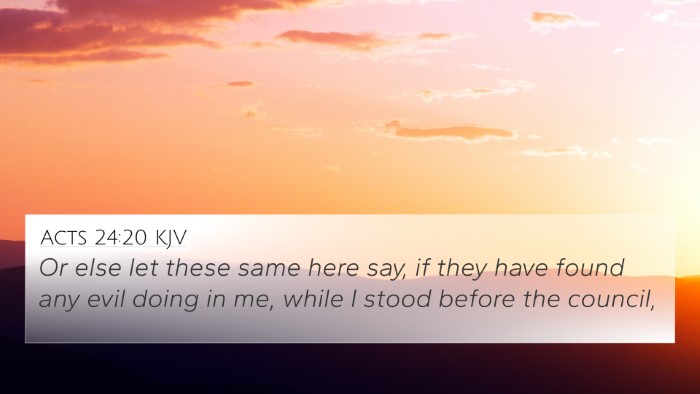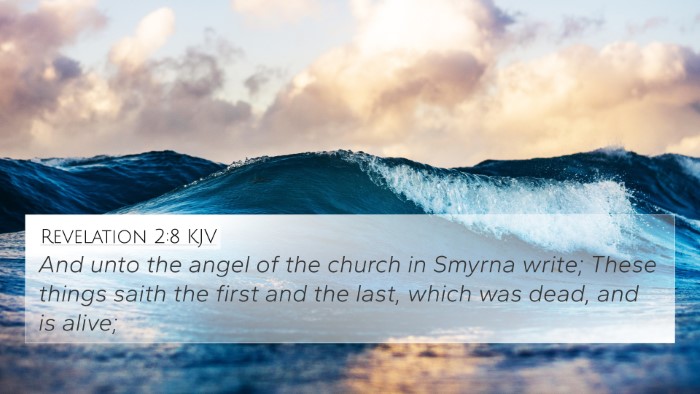Understanding 1 Kings 18:18
Bible Verse: 1 Kings 18:18 - "And Elijah answered and said, 'I have not troubled Israel, but you have, and your father's house, in that you have forsaken the commandments of the Lord and have followed the Baals.'
Verse Meaning and Insights
This verse captures the confrontation between the Prophet Elijah and the apostate rulers of Israel, King Ahab and his wife, Jezebel. The significance of this exchange lies in Elijah's assertion of his innocence regarding the troubles in Israel, attributing them instead to the sinful actions of Ahab and his lineage, particularly their abandonment of God's commandments.
Commentary Insights
Combining insights from public domain commentaries:
-
Matthew Henry: Henry posits that Elijah asserts his role not as the cause of Israel's troubles but as a faithful servant of God, pointing out the real culprits are the leaders who have led the nation into idolatry. This commentary emphasizes the covenantal relationship between God and Israel, highlighting that turning away from God incurs divine judgment.
-
Albert Barnes: Barnes elaborates on the significance of the term "troubled," indicating that the drought and famine affecting Israel were consequences of the people's disobedience. He underscores the passionate nature of Elijah as a prophet who stands firm in his beliefs and is willing to confront evil in the face of societal apostasy.
-
Adam Clarke: Clarke focuses on the historical and cultural implications, citing that Elijah’s challenge is not just about religion but the very identity of Israel as God's chosen people. He notes the shift from worshipping Yahweh to Baal signifies a deeper moral and spiritual decline.
Cross-Referencing Biblical Texts
This verse connects to several other scriptures, presenting themes of idolatry, prophetic confrontation, and divine judgment:
- 1 Kings 17:1: Establishes Elijah's role as a messenger of God and introduces the drought connected to Israel's unfaithfulness.
- Exodus 20:3-5: The commandment against idolatry emphasizes the importance of fidelity to God, a contrast to Ahab's actions.
- 2 Chronicles 21:20: Ahab's legacy is addressed, highlighting his evil deeds and their repercussions.
- James 5:17: References Elijah's prayer for drought, showing his connection to the suffering of the nation due to sin.
- Matthew 12:41: Jesus references the Ninevites' response to Jonah's preaching as a contrast to Israel's refusal to heed Elijah's call to repentance.
- Romans 11:4: Paul speaks of a remnant chosen by grace, echoing the continual theme of God's faithful followers amidst widespread disobedience.
- Malachi 4:5: Prophesies the return of Elijah, signifying his pivotal role in Israel’s spiritual history.
Thematic Connections
This verse contributes to several major biblical themes:
- Idolatry vs. Faithfulness: The call to remain faithful to God contrasts sharply with the temptation towards idolatry.
- Prophetic Voice in a Corrupt Society: Elijah embodies the prophetic tradition of speaking truth to power, challenging societal norms.
- Consequences of Sin: The direct connection between sin, judgment, and a call to repentance is woven throughout the Old Testament narratives.
Conclusion
In understanding 1 Kings 18:18, one cannot overlook the profound implications of Elijah's message. It serves as a timeless reminder of the consequences of turning away from God's commandments and the essential role of divinely appointed leaders to call sinners to repentance. This verse, and the commentaries surrounding it, offer rich material for anyone engaging in Bible verse cross-references and cross-referencing Bible study methods. Delving deeper into the connections between scriptures allows one to appreciate the intricate tapestry of biblical truths.
Tools for Further Study
For those seeking to deepen their understanding of biblical texts and themes, several resources may be beneficial:
- Bible concordance
- Bible cross-reference guide
- Cross-reference Bible study tools
- Comprehensive Bible cross-reference materials
